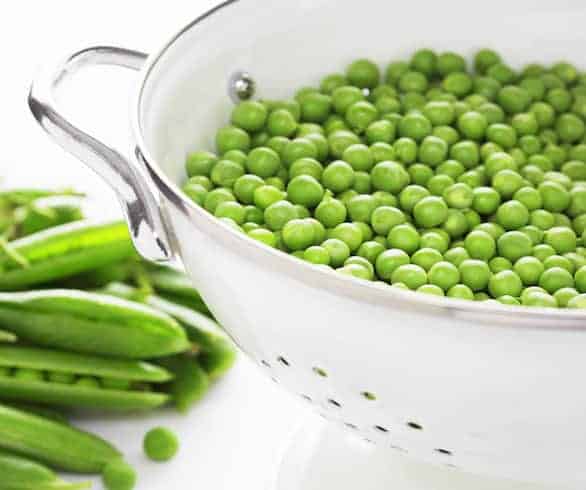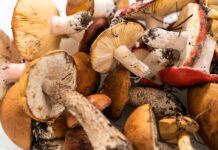
Step up your supplement game with pea protein
By Melissa Smith, CNP
Have you heard? Protein powder is no longer reserved for body builders and avid gym-goers. It has become a staple in modern diets as a convenient health food with many
benefits. These protein powders come in various forms, including dairy, egg, beef, cricket, hemp, brown rice, and pea protein. Pea protein has rapidly become popular in vegan- and vegetarian-based protein powders, yet it has health benefits suitable for all diets. Not only is it gluten- and dairy-free, but it lacks the inflammatory qualities of the more common protein powder options.
PROMOTES WEIGHT LOSS
Including good sources of protein is important to those wanting to lose weight. Protein helps to build muscle, which in turn helps the body to burn fat and increase metabolism. Pea protein is shown to keep you fuller for longer by reducing levels of the hunger hormone, ghrelin. The stomach secretes this hormone when it is empty, which makes you feel hungry. Pea protein produces peptides that delay your stomach from emptying.
AIDS IN BUILDING MUSCLE
If you are looking to build muscle, you can look beyond the dairy- based proteins that many opt for. Plant-based proteins are shown to have the same effect on muscle growth as their counterparts. The amino acid, l-arginine, is found in concentrated amounts in pea protein and is shown to be especially good for muscle growth. According to Food Navigator, pea protein also holds the highest concentration of l-arginine of all protein products.
AIDS IN BUILDING MUSCLE
A study done at the University of Manitoba in 2009 found that pea protein lowers high blood pressure. Over the course of eight weeks, rats showed a 20 per cent decrease in blood pressure when given a pea protein treatment (Paddock, 2016).
In another study published by the American Journal of Epidemiology, consumption of plant-based proteins decreased the risk of coronary heart disease (Paddock, 2016).
As well, since pea protein doesn’t promote inflammation, it ultimately reduces your risk for heart issues.
SUPPORTS HEALTHY KIDNEYS
In the same 2009 study at the University of Manitoba, researchers found that pea protein may delay or prevent the onset of chronic kidney disease (CDK). Patients with diagnosed CDK can bene- fit from pea protein’s ability to reduce blood pressure levels as CDK-related deaths are often due to increased blood pressure. It’s important to note that this study concluded that whole peas did not have the same beneficial effects as isolated pea protein.
For vegetarians and people with food sensitivities, pea protein provides a healthy alternative to dairy- or egg-based proteins. However, considering all its health-promoting benefits, pea protein can benefit most individuals. You will find it on its own or in a blend of plant-based protein powders on the shelves of your local health food store. VM











